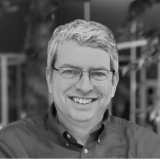Rob Whitney, a quantum physicist focused on quantum technology, and Olivier Ezratty, an author and engineer specializing in quantum technologies, are interviewed by Yuval.
Read the full transcript or listen to the episode at the Quantum Computing Report site here
Here are the key points:
- Introduction and Backgrounds: Rob Whitney has been working on quantum physics since the late nineties, with a recent focus on quantum technology and computing. Olivier Ezratty is an author and engineer who works on bridging the gap between hardware and software in quantum technologies.
- Quantum Energy Initiative (QEI): Both guests are involved in the Quantum Energy Initiative, which aims to study the energy consumption of quantum technologies. The initiative has garnered a community of about 300 participants and 24 industry partners, mostly from Europe. They are planning their first workshop in Singapore in November.
- Energy Consumption Concerns: Despite the common belief that quantum computers consume less energy than classical computers, Rob and Olivier argue that it's crucial to address energy consumption early on. They point out that depending on the technology and scale, quantum computers could require as much energy as multiple nuclear reactors.
- Interdisciplinary Approach: The energy consumption of quantum computers is influenced by a variety of factors, including the choice of algorithm, hardware design, and even cryogenics. This requires an interdisciplinary approach to find the optimal balance between energy consumption and computational power.
- Role of Control Electronics: Surprisingly, the control electronics, even when at room temperature, can contribute significantly to the overall energy consumption. This is especially true for superconducting qubits.
- Different Technologies, Different Energy Profiles: The energy consumption varies significantly across different types of qubits like superconducting qubits, trapped ions, and photons. Each has its own set of challenges and opportunities for energy optimization.
- Optimization Strategies: For superconducting qubits, strategies like reducing the number of wires through multiplexing can help in energy conservation. However, this comes with trade-offs like increased crosstalk between qubits.
- Algorithmic Considerations: The choice of quantum algorithm can also impact energy consumption. Software and compilers will play a key role in optimizing the energetics of quantum computing.
- Industry Engagement: While some hardware vendors are starting to consider energy consumption, more collaboration and data sharing are needed for accurate modeling. Customers are increasingly considering energy efficiency as a factor in adopting quantum computing.
- Future Benchmarks and Standardization: The QEI is working towards creating benchmarks for energy consumption in quantum computing. They are also engaging with standardization bodies to formalize these metrics.
- Scaling and Energy Consumption: Unlike classical computing where energy consumption scales linearly with the number of cores, the scaling in quantum computing is more complex and can be influenced by factors like qubit quality and connectivity.
Read the full transcript or listen to the episode at the Quantum Computing Report site here


.webp)
.webp)




.webp)
.webp)
.webp)

.webp)

.webp)





